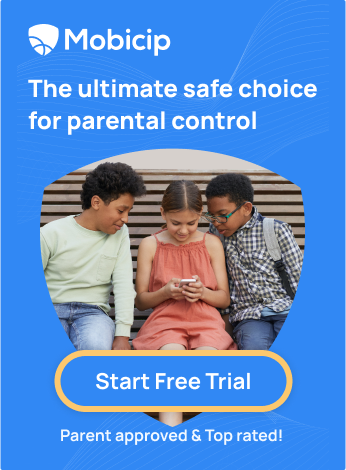Everything Parents Need to Know About Yubo

Yubo (formerly known as Yellow), a social networking site that had 60 million users in 2022 is designed to meet new people and create a sense of community. The public perception of Yubo is that it is a place in which teenagers connect to and flirt with one another. It is often considered a “Tinder for Teens”. It is fairly similar to Snapchat in terms of the user interface, which makes it easy for teens to use because they are already comfortable with Snapchat.
Some of the features that Yubo offers include:
- Two disjoint communities – one for young people aged 13–17 and an adult community for people aged 18 and above. Members of one community can only interact with other people in their group and cannot communicate with members of the other community
- Livestreaming of videos. Any number of viewers can view the streams
- Yubo does not offer a 'like' function on its app, and the app is not based on the followers
- Multiple gender options and pronouns
- Pixels collection is a collection of digital art – this is a paid feature and users can pay to start their collection of digital art.
- Tags are categories used by users to share their interests.
- Yubo has its virtual currency YuBucks that are purchased for real money.
- Verified Profiles: The app uses age-estimation technology during sign-up using a real-time picture. The photos are also searched on Google to check if it has been lifted off the internet. Verified users are marked with a yellow badge on their profile.
To Yubo or not to Yubo?
Yubo, like most social media apps targeted at youngsters, has received mixed feedback from users and parents/caregivers. The most frequently heard positive feedback is that the app helps make new friends from all over the world. This was perhaps most heard during the pandemic and its related lockdowns, during which many people, especially youngsters, resorted to online mediums to socialize. Much of the review, especially from parents and caregivers of children and adolescents has been critical of the app.
A parent shared their child’s experience on Common Sense Media’s review of Yubo:
“My 14 yr old adopted daughter who suffers from PTSD met other mentally ill kids on this website. Now she is suffering new mental health symptoms and has had suicidal episodes. It’s not safe. you don’t know who your child is dealing with, how old they really are or their mental health profile.”
Some of the specific complaints have been:
- Stranger danger: This is a danger with all social media sites that teenagers frequent. Teens are often contacted online by strangers and bullying is quite common. It has been shown that in general, nearly a third (32%) of online teenagers are contacted online by someone who was a stranger and who had no connection to any of their friends. Pew Research shows that 21% of contacted teens respond to the stranger while only 3% tell an adult about it. Another parent shared on Common Sense Media's review of Yubo app:
"This is essentially a dating app for kids. My 13-year-old daughter was able to contact older men who were asking her for her phone number and explicit pictures. Never let your child use this app!"
- In live-streaming scenarios, there is a risk of online bullying and exploitation. It must be remembered that such acts need not always be perpetrated by adults on children, but between children themselves.
- Age verification bypass: While Yubo does have a security system in place by which the age is automatically matched with the profile photo, and there is a background check of the photo, it is not a foolproof method of age verification which is a risk for predatory attacks and online grooming.
- Location sharing: Yubo offers the option of not sharing their physical location, but even if a user chooses to enable their location sharing it will not share their
precise location, only their city. This information is shown to other users in the geographic area, along with their names and age. This could be dangerous. - Inappropriate content: this is a bane of all social media apps, Yubo included. There are real-time checks provided by Yubo to prevent such inappropraite content to remain on the platform, but sometimes they could have reached an audience with the live-streaming feature before being banned.
- Bullying and hate speech: As with every online platform, trolling, bullying, and hate speech may occur on Yubo. The live streaming feature makes it challenging to filter language – even if the streaming is blocked eventually, some of the content has already reached the audience.
- Time loss: Teenagers have a very poor sense of time management and judgment due to the still-developing prefrontal cortex of their brains. Many teenagers feel the compulsive need to spend an unhealthy amount of time on social media sites like Yubo so that they don’t miss out on anything and thus fit in. Spending injudicious amounts of time on social media apps can distract teenagers, disrupt their sleep, expose them to bullying and other predatory behavior and result in unbearable peer pressure that could lead to mental health issues.
- Addiction: Yubo, like most social media sites, can be addictive. BBC published an article titled “FOMO: How the Fear of Missing Out drives social media ‘addiction’”, in which it was reported that high school students who were challenged to not go on their phones or check their notifications felt “more disconnected and isolated from the world […]”. Interactions and even passive consumption in SM applications like Yubo give adolescents a physiological high which makes them addicted to it. In the funny and engaging words of the 2020 managing editor of a student-run publication, “What I discovered is that even though I felt like my soul was slowly withering away each time I started swiping, once I started, I couldn’t stop.”
What do we recommend?
We at Mobicip recommend that children and teenagers be kept out of social media apps and sites like Yubo as much as possible. But if the teenager, for some reason, must get on Yubo
or other such social media platforms, ensure the following for responsible use of this and other social media sites:
- Set limits: For younger teens, enforce limits through screen sharing, use of apps like Mobicip to limit screen time, and monitor activity directly or through third-party apps. For older teens, talk to them about the potential risks of social media apps like Yubo and the possible debilitating effects on their activities, sleep, health, school work, homework, and real-life relationships.
- Teach them about social media ethics: Teach every child from early on, what is OK and what’s not OK to say or do on social media sites like Yubo. Explain that gossiping, spreading rumors, bullying, damaging someone’s reputation, or making unwelcome romantic or sexual advances toward other teens or children is wrong
- Talk to your teen about what is appropriate and safe to share on social media. Stranger danger is very real on apps like Yubo and the child/teenager must be vigilant all the time when using the app.
- Encourage face-to-face contact with friends. The pandemic and related lockdowns have shown us the importance of real-life contacts and interactions. The human race has survived through thousands of years only through the camaraderie and association afforded by a real-life society. Encourage youngsters to have healthy relationships in real lives, and not just live in a virtual reality, most of which is fabricated and not real.
- Have “the” talk about teenagers about their sexual health. Teenage is ruled by hormones, and the need to pair bond is an instinct. However, how it is done is extremely important for long-term well-being. While the romantic stories online about how someone met their significant other on dating apps can be tempting, the risks and stakes are high. Teenage is the time of learning and forging a path for life. Now’s perhaps not the time to take long-term decisions about relationships. Ensure that the teenager is aware of it so that they don’t lose perspective when interacting on applications like Yubo.
- Encourage your teenager or child to communicate with you and be non-judgemental. Everyone makes mistakes. Learn, correct, and move on. This will instill a sense of trust in the teenager’s mind about the caregiving adult so that there is open communication between them. Teenage is the age of rebellion. Only trust can bridge any gap that rebellion may cause.
- If you think your teen is experiencing signs or symptoms of anxiety or depression related to social media use, talk to your child's healthcare provider.
- If your teen is being subjected to bullying, predation, or harassment – sexual or otherwise- on social media apps like Yubo, take action. Report to authorities. Report to the social media site. Each country has its security cell to deal with cybercrimes. Report to them.
Catching them young must be the watchword for setting up rules and guidelines for youngsters getting on social media sites like Yubo, Snapchat and Omegle. It is easier to inculcate good habits and behavior in young, impressionable children than in teenagers. Training them well when young can propel the teenager with the pedal power of childhood learning. Most importantly, be the change you wish to see in your child. The above rules and guidelines are not just for teenagers. Social media hygiene is essential to everyone in it. Children learn from their parents and the other adults in their lives to a certain extent. Lead by example, and as for the rest, let us at Mobicip, help you with managing your child’s online activity.







